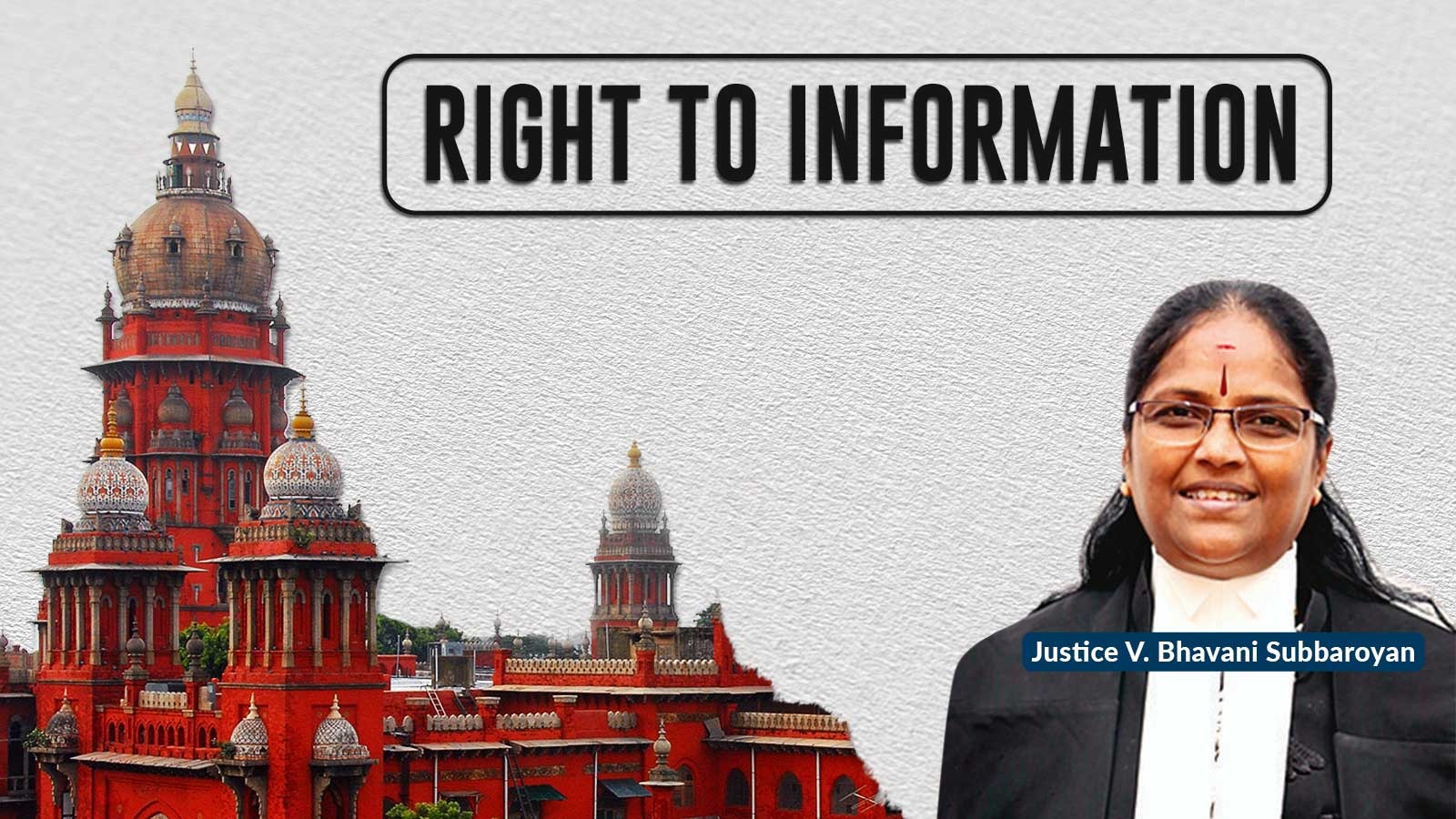'Co-operative societies not bound to disclose information under RTI Act': Madras HC

Court quashed an order passed by the Tamil Nadu Information Commission (TNIC) that required a cooperative society to disclose details about the loans it had extended
The Madras High Court recently observed that a co-operative society registered under the Tamil Nadu Co-operative Societies Act is not bound by the Right to Information (RTI) Act of 2005 to provide the information requested by a citizen. Court said that the co-operative society does not fall within the definition of “public authority” as defined under Section 2(h) of the RTI Act.
The bench of Justice V. Bhavani Subbaroyan set aside an order by the Tamil Nadu Information Commission (TNIC) that required a cooperative society to disclose details about the loans it had extended.
The verdict was delivered in a writ petition filed by the president of the Madhanam Primary Agricultural Cooperative Credit Society in Sirkazhi Taluk, Mayiladuthurai district. The petitioner had challenged the TNIC's order dated May 4, 2022, which demanded the disclosure of crop and jewel loan details.
K. Jeeva, a member of the petitioner's society, initially filed an RTI application with the Deputy Registrar of Cooperative Societies in Mayiladuthurai. He sought comprehensive details regarding loans extended to farmers between 2015 and 2021, as well as information on the property documents submitted to secure these loans. Jeeva aimed to use this information to substantiate his claim that the petitioner society had issued numerous crop loans based on fake property documents.
Furthermore, he alleged that these loans were subsequently waived off following the State government's decisions to assist indigent farmers. He highlighted that in the year 2021-22 alone, a substantial amount of Rs 10,292 crore was disbursed as crop loans to 14.84 lakh farmers through cooperative societies. He noted that both the Central and State governments provide various incentives related to the payment of interest on these loans.
The RTI applicant aimed to demonstrate that the benefits rarely reached marginal farmers. Unsatisfied with the responses from both the Deputy Registrar and the Joint Registrar, who served as the first appellate authority, he filed a second appeal with the Tamil Nadu Information Commission (TNIC).
The Commission then ordered the petitioner society to disclose all the requested information, prompting the current writ petition.
Challenging the TNIC’s order, the counsel representing the society, R. Shirram Adhethyen, argued that a cooperative society is an autonomous entity, not a public authority.
He further contended that a cooperative society is not a statutory body performing public functions and thus does not qualify as 'the State' under Article 12 of the Constitution. He cited a 2013 Supreme Court decision in a similar case from Kerala, which had also been upheld by a Division Bench of the Madras High Court in 2015.
Justice Subbaroyan agreed with this interpretation and held the TNIC's order liable to be quashed.
Case Title: The President, Madhanam Primary Agricultural, Co-operative Credit Society v. The State Information Commissioner and Others
